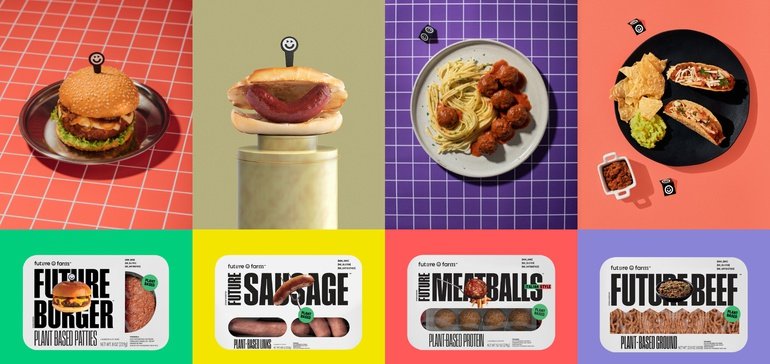Future Farm lands $58M investment round

Dive Brief:
- Brazil-based plant-based meat company Future Farm received $58 million in a Series C investment round. The round was led by BTG Pactual and Rage Capital, and brings the company’s total funding to $89 million.
- Future Farm, also known as Fazenda Futuro, will use the funds to accelerate its international expansions and on R&D for new and improved products. It plans to bring Future Chick’n and Future Tuna to the United States, expand into plant-based drinks and dairy in North America and European markets, and continue to work toward its goal of 100% sustainable and plant-based packaging made from sugar cane.
- The company is currently in more than 20 countries in Latin America, Europe, Canada and the Middle East. It launched in the United States in July, and U.S. CEO Alexandre Ruberti said this summer the company believes it will get about 65% of its sales here within the next couple of years.
Dive Insight:
This investment round more than doubles Future Farm’s total fundraising haul, and helps equip a company that saw its popularity snowball in its home country to expand further.
Co-founder Marcos Leta said in a written statement that the funding validates the opportunity within plant-based food and opens the door to Future Farm’s next chapter: innovating to create products that can replace meat, seafood, poultry and dairy.
Future Farm was founded in 2019 and has had a dynamic first two years of business. It started in the South American country known for having one of the highest rates of per capita beef consumption. This summer, Future Farm had nearly 25% market share in burgers — both made from meat and alternatives — at Pão de Açucar, one of Brazil’s largest supermarkets, according to statistics from the company. It’s sold more than 9 million burgers in its home country.
Ruberti told Food Dive earlier this year that what makes Future Farm stand apart from other offerings in this segment is price. Two-packs of Future Burgers, now available through e-commerce, cost slightly less than competitors from Impossible Foods and Beyond Meat, and are closer to the cost of meat burgers. Ruberti said the company wanted to democratize plant-based eating, making it accessible to everyone.
The alternative dairy space could be a lucrative new area for Future Farm. Company images online show product prototypes that would bring it in head-to-head competition with other players, including a carton of Future Oat Milk and a box of sticks of Future Butter.
According to SPINS data collected for the Plant Based Foods Association and Good Food Institute, plant-based milk made up 15% of the total dairy category in 2020, with nearly four in 10 households purchasing it. Oat milk sales more than tripled in 2020.
Sales of plant-based dairy spreads are also surging. According to SPINS data, the category to which plant-based butter belongs saw 25% sales growth in the 52 weeks that ended July 11.
Future Farm isn’t the first company to have found success in plant-based meat and then transitioned to plant-based dairy. NotCo, which was founded in Chile in 2015, has plant-based products in several categories in markets worldwide. The company’s NotBurger, which the company said last year had 50% market share of all burgers in Argentina, isn’t even in the product lineup it brought to the United States. Here, the company’s top product is its artificial-intelligence-formulated NotMilk, which helped NotCo land a $235 million investment round this summer.
U.S. plant-based burger titans Impossible Foods and Beyond Meat have also teased alternative dairy launches. Impossible showed off a milk prototype at a virtual press conference last year, and Beyond Meat has filed to trademark “Beyond Milk.”
Source: fooddive.com

